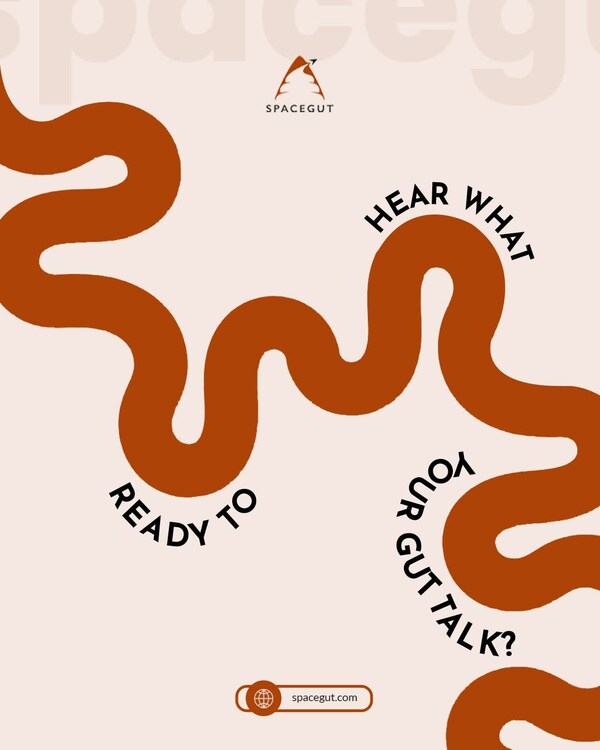Science
SpaceGut Launches AI System, Enhancing IBS Management by 87%

SpaceGut, Malaysia’s first AI-powered at-home gut microbiome test kit, has significantly improved the management of Irritable Bowel Syndrome (IBS). Launched just ten months ago, the system has achieved up to an impressive 87% improvement in IBS management for its users. More than 500 individuals have utilized this innovative solution, taking control of their digestive health from the comfort of their homes.
Approximately 14% of Malaysia’s population suffers from IBS, a condition that can lead to nutritional deficiencies exacerbated by restrictive diets. According to research published in the Journal of Clinical Medicine, IBS is a complex disorder influenced by interactions among the gut microbiota, immune system, and nervous system. This underscores the need for tailored treatment approaches to effectively manage symptoms such as abdominal pain, bloating, and irregular bowel habits.
Personalized Insights for Improved Gut Health
SpaceGut’s AI-driven system conducts an extensive analysis of thousands of bacterial species to map a user’s gut microbiome. This process reveals a unique profile of gut bacteria, allowing for the extraction of over 30 measurable health metrics, including microbiome diversity, metabolic activity, and sensitivities to lactose and gluten.
The system evaluates the balance of beneficial and problematic bacteria within an individual’s microbiome. It generates a comprehensive score for more than 400 foods, guiding users toward precise dietary recommendations. Foods that nourish beneficial bacteria, such as Bifidobacteria and Lactobacillus, are recommended for regular consumption. Conversely, items that may promote inflammation or imbalance are flagged for reduction or temporary avoidance. This strategic approach aims to restore microbial balance, enhance digestion, and improve overall health outcomes.
Evidence-Based Approach to Symptom Management
Backed by a database of over 50,000 samples and more than 90 research studies, SpaceGut’s insights are rooted in solid scientific evidence. The system provides users with tailored recommendations based on their unique gut profiles, allowing them to understand how specific foods impact their digestive health. This enables individuals to make informed dietary changes that can reduce the severity and frequency of IBS symptoms.
Datuk Tony Wong, Founder of SpaceGut, emphasized the importance of personalized solutions in managing IBS. “IBS affects millions of people worldwide, yet solutions are often generic and inconsistent, leaving many without clear guidance. SpaceGut uses AI-powered analysis to provide personalized insights, helping individuals understand their unique digestive needs,” Wong stated.
As the demand for personalized health solutions continues to grow, SpaceGut is dedicated to making gut health accessible and actionable. For more information about how SpaceGut’s AI-powered testing can help individuals identify triggers and personalize their diets, visit www.spacegut.com.
Stay connected with SpaceGut for ongoing updates through their social media platforms on Instagram (@space_gut) and Facebook (SpaceGut). As the company expands its offerings to include personalized supplement plans and expert-backed wellness guidance, it aims to empower users to optimize their health from the inside out.
-

 World5 months ago
World5 months agoSouth Korea’s Foreign Minister Cho Hyun to Visit China This Week
-

 Business5 months ago
Business5 months agoStarling Bank Plans Secondary Share Sale, Targeting $5.4 Billion Valuation
-

 Top Stories5 months ago
Top Stories5 months agoMunsang College Celebrates 100 Years with Grand Ceremony
-

 World5 months ago
World5 months agoPAS Aims to Expand Parliamentary Influence in Upcoming Election
-

 Business7 months ago
Business7 months agoKenvue Dismisses CEO Thibaut Mongon as Strategic Review Advances
-

 Lifestyle6 months ago
Lifestyle6 months agoHumanism Camp Engages 250 Youths in Summer Fest 2025
-

 Sports6 months ago
Sports6 months agoDe Minaur Triumphs at Washington Open After Thrilling Comeback
-

 Sports7 months ago
Sports7 months agoTupou and Daugunu Join First Nations Squad for Lions Clash
-

 Top Stories7 months ago
Top Stories7 months agoColombian Senator Miguel Uribe Shows Signs of Recovery After Attack
-

 World7 months ago
World7 months agoASEAN Gears Up for Historic Joint Meeting of Foreign and Economic Ministers
-

 Health6 months ago
Health6 months agoNew Study Challenges Assumptions About Aging and Inflammation
-

 Business7 months ago
Business7 months agoOil Prices Surge Following New EU Sanctions on Russia









